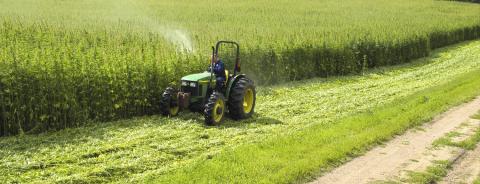Hemp

As hemp becomes more and more mainstream, it's important to understand the differences between hemp and cannabis. Hemp and cannabis share the species name Cannabis.
Hemp is cannabis with a tetrahydrocannabinol (THC) concentration of 0.3% or less on a dry weight basis.
cannabis cannabis with a THC concentration of more than 0.3% on a dry weight basis.
It’s impossible to tell hemp from cannabis based solely on visuals.
Hemp is regulated by the United States Department of Agriculture (USDA). The Federal 2018 Farm Bill authorized industrial hemp production in the United States. Individual states may take the primary regulatory authority, if they receive approval from the USDA. When its hemp production plan is approved, the Washington State Department of Agriculture (WSDA) will issue hemp producer licenses and collect fees. Currently, WSDA is issuing permits through their industrial hemp research pilot program.
cannabis is regulated by WSLCB in Washington. WSLCB issues licenses and regulates the production, processing and retail sales of recreational cannabis. Medical cannabis authorization is regulated by the Washington State Department of Health (DOH). Beginning in July, 2024, the Washington State Department of Ecology (DOE) will certify labs that test for potency, pesticides and heavy metals in cannabis. DOE is also responsible for cannabis lab accreditation.
What is Cannabidiol (CBD)?
Cannabidiol (CBD) is a component of the cannabis plant. It is isolated from tetrahydrocannabinol (THC). CBD is the second most prevalent of the active ingredients of cannabis (cannabis). CBD is an essential component of medical cannabis, but it is also derived directly from the hemp plant. CBD is one of hundreds of compounds present in cannabis. It does not cause a “high” by itself, but is psychoactive, and may impact a person's mental state.
CBD is most commonly used to address anxiety, insomnia and chronic pain and inflammation. While it is readily available in most parts of the United States, its exact legal status is in flux. The federal government considers CBD in the same class as cannabis, but doesn't necessarily enforce against it. In December, 2015, the Food and Drug Administration (FDA) eased the regulatory requirements to allow researchers to conduct CBD trials. In 2018, the FDA approved Epidiolex, a pharmaceutical containing CBD for the management of pediatric epilepsy. The confusion surrounding CBD and its legal status and therapeutic have added to its presence in the marketplace.
In Washington State, licensed cannabis producer/processors can obtain CBD from outside the regulated cannabis industry to use as an additive to cannabis products as long as the CBD has less than 0.3% THC and has been tested to state standards. Non-ingestible CBD health and beauty aid products are not regulated by any state agency unless they are sold at cannabis retailers. Outside of the regulated cannabis landscape, WSLCB has limited enforcement authority when it comes to CBD. Enforcement may occur when a general retailer sells a tobacco vapor product with added CBD. Outside of licensed cannabis retail stores, CBD cannot be added to orally ingestible products like foods or beverages.